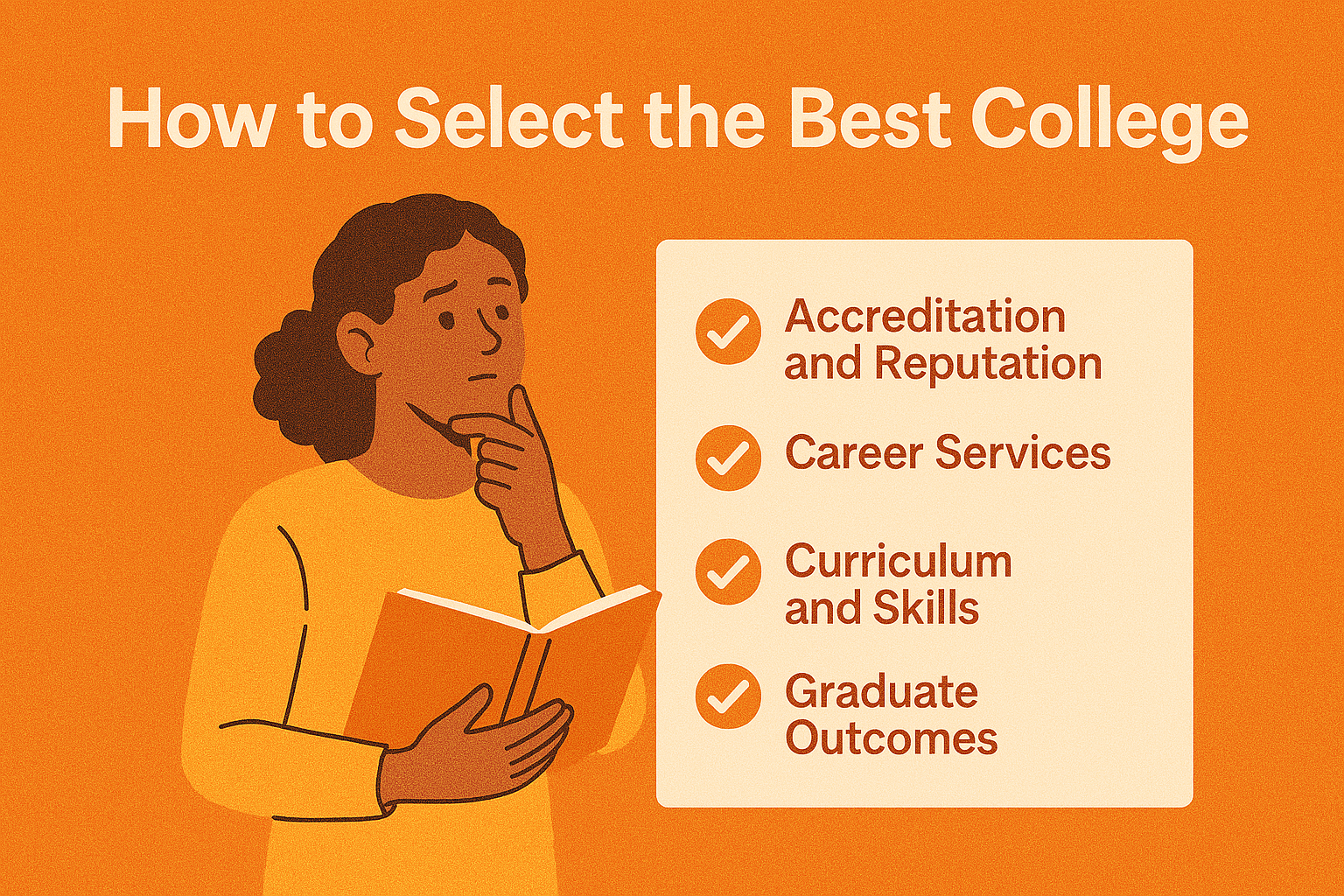Choosing the right college is a pivotal decision that significantly influences your academic journey, career trajectory, and personal development. Beyond factors like location and campus culture, it’s essential to evaluate how a college’s specific attributes align with your career aspirations. This guide will help you navigate these considerations to make an informed choice.
1. Accreditation and Academic Reputation
Why It Matters: Accreditation ensures that an institution meets established standards of quality and rigor. Attending an accredited college is often a prerequisite for graduate programs and is highly regarded by employers.
What to Look For:
- Regional vs. National Accreditation: Regional accreditation is generally more prestigious and widely recognized than national accreditation.
- Program-Specific Accreditation: Certain fields, such as engineering or business, have specialized accrediting bodies. Ensure your intended program has the appropriate accreditation.
Action Steps:
- Verify the college’s accreditation status through the U.S. Department of Education’s Database of Accredited Postsecondary Institutions and Programs.
2. Career Services and Support
Why It Matters: Robust career services can bridge the gap between education and employment, providing resources that enhance employability.
What to Look For:
- Internship and Co-op Programs: Opportunities to gain practical experience while studying can be invaluable.
- Job Placement Rates: High placement rates indicate effective support in transitioning graduates into the workforce.
- Alumni Network: A strong, active network can open doors to mentorship and job opportunities.
Action Steps:
- Explore the college’s career center offerings and inquire about partnerships with employers in your field of interest.
3. Industry Connections and Employer Engagement
Why It Matters: Colleges with strong ties to industries can offer students direct pathways to employment through established relationships.
What to Look For:
- On-Campus Recruitment: Regular visits from companies for interviews and career fairs suggest active employer engagement.
- Advisory Boards: Programs that consult with industry professionals to shape curriculum ensure relevance to current job markets.
Action Steps:
- Attend information sessions or open houses to ask about the college’s relationships with employers in your desired industry.
4. Curriculum and Skill Development
Why It Matters: A curriculum that balances theoretical knowledge with practical skills prepares you comprehensively for the workforce.
What to Look For:
- Experiential Learning: Courses that incorporate real-world projects or simulations enhance practical understanding.
- Soft Skills Training: Programs that emphasize communication, teamwork, and problem-solving skills are valuable, as employers highly seek these.
Action Steps:
- Review course catalogs and syllabi to assess how the program integrates skill development relevant to your career goals.
5. Graduate Outcomes and Alumni Success
Why It Matters: The achievements of alumni can provide insight into the effectiveness of the college’s programs and support systems.
What to Look For:
- Employment Statistics: Data on where graduates are employed and their starting salaries can indicate the return on investment.
- Graduate School Acceptance Rates: High rates may reflect strong academic preparation for advanced studies.
Action Steps:
- Request outcome reports from the admissions office and connect with alumni through platforms like LinkedIn to hear about their experiences firsthand.
6. Flexibility and Continuing Education
Why It Matters: As career paths evolve, having options for further education or skill enhancement is crucial.
What to Look For:
- Online and Part-Time Options: Flexibility can be essential if you plan to work while studying or need to balance other commitments.
- Lifelong Learning Opportunities: Access to workshops, certifications, and advanced degrees can support ongoing professional development.
Action Steps:
- Investigate the availability of flexible learning options and additional training programs that can be accessed post-graduation.
Conclusion
Selecting a college involves more than just considering its name or prestige; it’s about finding an institution whose offerings align with your career ambitions and learning style. By focusing on factors such as accreditation, career services, industry connections, curriculum design, alumni outcomes, and educational flexibility, you position yourself to make a choice that supports both your immediate educational needs and long-term professional success.
Next Steps:
- Create a personalized checklist based on the factors above to evaluate potential colleges.
- Reach out to current students and faculty to gain deeper insights into the programs and support services.
- Reflect on your career goals and assess how each college can facilitate your journey toward achieving them.
Remember: The best college for you is one that not only provides a quality education but also equips you with the tools, experiences, and connections necessary to thrive in your chosen career.


Leave a Reply